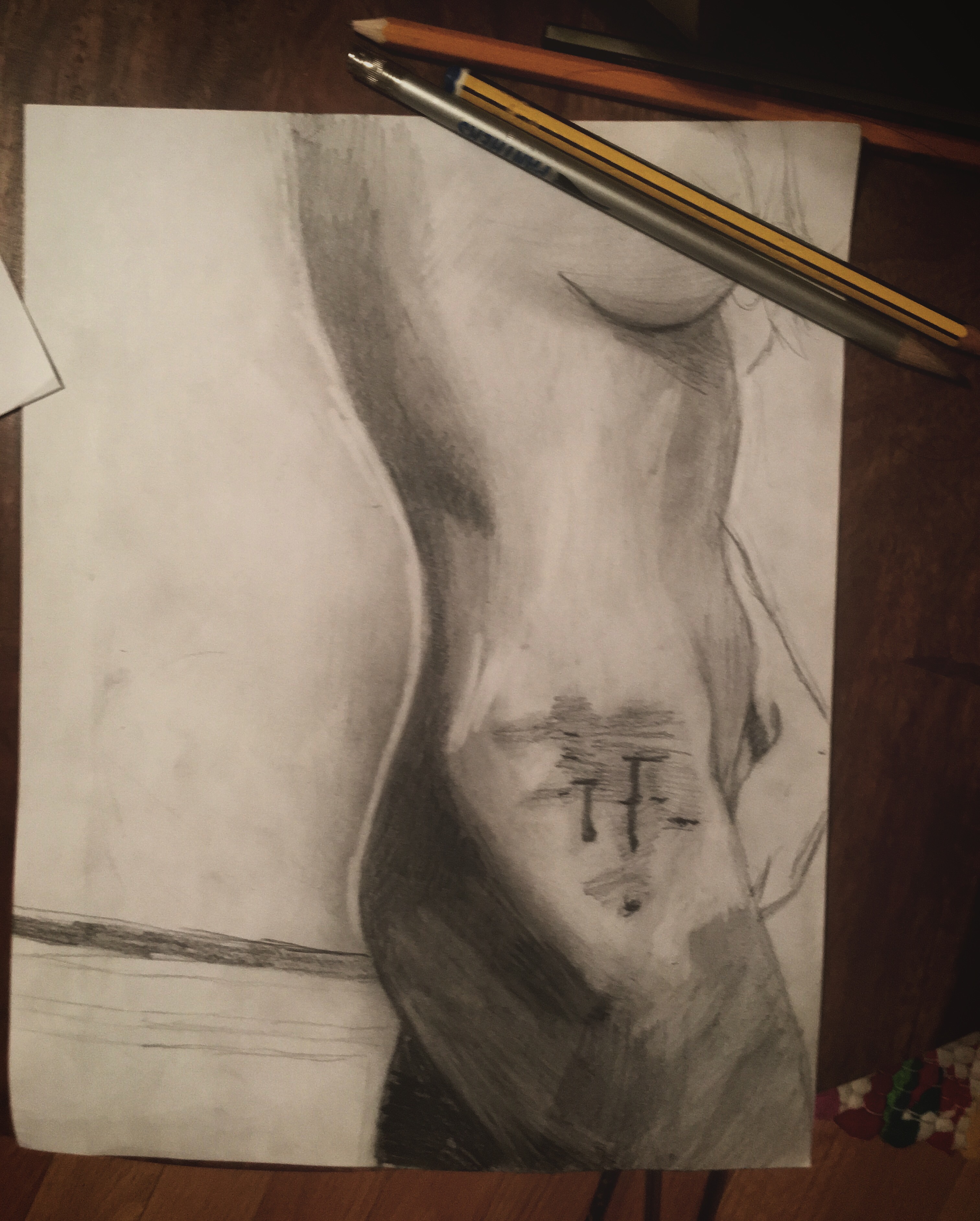All the advantages of Christianity and alcohol; none of their defects…. Stability was practically guaranteed.
Aldous Huxley, Brave New World
It was one of those nights that I thought would be easy. I wanted so badly to fall asleep quietly, my mind as smooth as a river-tamed stone. I tried to ignore the tremors in my hands, the relentlessly painful wrenching in my lungs. I tried to be normal, like my brothers in the room beside me. I tried to be okay.
But I wasn’t okay. Sometimes I’m just not. And I wish I could tell you a less predictable story, but this is the one that I have. My mind was writhing, wracked with some memory, and I did that grisly and familiar thing. I allowed my skin to take the punishment for my failed efforts towards apathy. There was nothing to be sorry for then. There was nothing anyone could do or say. In every surmountable sense, there was nothing at all. Just me, and this feeling, and a hideous slew of recollections–and the knowledge that it was my fault for having ever allowed them to matter.
So then, the next day, another doctor checked my pulse, heard my confession, shook her head, wrote something new on a little slip of paper. Now, when the horrible thoughts come, warped and screaming at the specter of his absence–or reliving all of the lovely nights that I would burn away in an instant to spare myself what has happened since–I place a small white tablet, like Communion, on my tongue. I swallow. I allow myself to feel warm and unfamiliar. I allow my veins to murmur: a low, sweet, hushing sound.
I never wanted to be this, the kind of person who leaves her health at the bottom of a filled prescription or a dirty glass; but the older I get, the harder it is to remember a single good feeling that did not come from a little orange bottle. So fuck it–I am giving this newest toxin a try.
Where am I at, now? How was my summer? I don’t really know. Sometimes, I sit outside in the morning and watch the world move in currents without even noticing the body that is me. In the daylight, I smoke like it might save me; but at night, I drink to kill.
So I have tried, with these small pills, to spin my mind a veil, a thing from a childhold fiction: a divine glass to draw between this feeling and me. Even at my best, I am still alone and lonely, pining for those who undid me, knowing some quiet concern for where they have gone, and how they have become. I stare rage, degradation, and disgust in the face, and feel nothing but a shrunken, blunted sorrow. Condemned by the doctor’s pen, I have relinquished my capacity to feel as deeply and fully as I once could.
How long will this terrible respite last? How long before I know true emotion again? I am not sure. But honestly, it is better this way.
Now I can crouch behind the corners of a chemical induction, safe from the prying eyes of self-loathing, despondency, paranoia, silence, abandonment, self-abasement, confusion, helplessness, despair. Because this year, and its people, have made me feel in a thousand different ways.
And feelings like that aren’t worth having at all.

Recent Comments